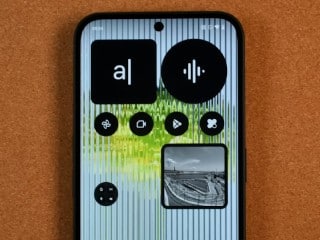- Home
- Games
- Games News
- PUBG Mobile 'Healthy Gameplay System' Error Fixed for India But Here's What Could Happen Next
PUBG Mobile 'Healthy Gameplay System' Error Fixed for India But Here's What Could Happen Next

PUBG Mobile Healthy Reminder feature is missing but more drastic measures may be in the offing
PUBG Mobile players in India have reported that the game received a Health Reminder feature. On activation, this limits player time and asks users to come back. Some claim that the feature stops PUBG Mobile if it's been played for more than six hours and others are seeing it even with just two hours of play time. Now, Tencent India has confirmed that this was an "error" on its part and that PUBG Mobile players can now play uninterrupted, though no reason for this feature being implemented was given. PUBG Mobile, which was released worldwide in March 2018, recently celebrated its first anniversary.
"Basis feedback from the community, we have now changed the Birthday Crate. The Healthy (sic) Gameplay System error has also been fixed, and you should be able to play uninterrupted. Lastly, payment systems are back up and running. We deeply apologise for the inconvenience," tweeted the official PUBG Mobile account for India.
In the last few months, PUBG Mobile has been banned in Gujarat schools, seen several individuals being arrested for playing it in cities like Rajkot, and reportedly responsible for the suicide of a Mumbai youth. Furthermore, an 11-year-old boy has taken Tencent to court in Mumbai claiming that the game promotes violence and cyber-bullying. A week ago Tencent stated it would be considering a "reasonable solution" for "responsible gaming". Industry sources tell Gadgets 360 that this apparent error was in actuality, an effort from the company to regulate play time given calls for banning it outright in the country.
Gadgets 360 reached out to Tencent for comment to find out if this was the case and if there were plans to regulate play time of the game since the Health Reminder feature has now been removed. While the company did not respond at press time, regulation and anti-addiction measures are nothing new for the company. Reason being, it forced to take such measures in its home country of China.
Here's what you could expect from the company in India, in the event stronger measures are taken. These include facial recognition, real name ID verification, and stringent parental controls, which may be enough to keep some players away completely given how invasive they are.
"Regulators in China have mandated that game operators add anti-addiction systems and real name registration to game titles to restrict the amount of time and money minors can spend in the game each day," says Daniel Ahmad to Gadgets 360. Ahmad is an analyst at Niko Partners, a firm that tracks the China games market extensively.
The games market in India isn't as large as say, films and it lacks a regulatory body as well. However, Tencent does have the technology in place to curtail play time. Ahmad tells us that these have been in place since 2017 in some of its games.
"Tencent introduced its anti-addiction system for Honor of Kings in 2017," he says. "Players under 12 years old are restricted one hour of game play per day before 9pm. Players between 13 and 17 years old would have a restriction of two hours of game play per day. Players aged 18 and over have no limits. This restriction system is enforced by a real name ID verification system that was imposed recently. This system is now being rolled out across all of Tencent's mobile games."
While forcing users to give their real name or upload ID proof may be a non-starter for some in India, there are other methods at play too to keep Chinese regulators and parents happy. These include a parental controls app to monitor and control the mount of time and spend in-game, effectively locking out under-13 players from PUBG Mobile until parents or guardians unlock the game for them, as well as facial recognition.
"Facial recognition is being used to strengthen the anti addiction system and ensure players are indeed over the age of 18. Note that facial recognition is currently in a trial period," he says. "We note that Tencent plans to expand its anti-addiction system to all of its published titles this year. There are currently 31 games that have this system implemented, including PUBG Mobile and Honor of Kings."
With this in mind, we wondered if these strict means of controlling play time would have an adverse impact on Tencent's monetisation, Ahmad claims otherwise.
"The fact is that the under-12 years old population is responsible for a sliver of total games revenue, and even the under-18 population is responsible for a small amount compared with the 18+ audience, who have more time and money to spend on games. Hence, we do not se a negative impact on margins," he says.
That said, sections of the Indian games industry believe that PUBG Mobile regulation, done by Tencent or otherwise, would benefit other the business as a whole.
"PUBG has been cornering a lot of revenue," a game studio executive tells Gadgets 360 on the condition of anonymity. "Others will grow. Smart developers could talk about how their games aren't as addictive."
Though it would be interesting to see if gamers take up say, the seemingly infinite number of cricket games available instead or jump on to the latest game based on a Bollywood celebrity or movie. They haven't in the past and probably won't now. And it's something some feel would continue to be the case.
"Regulation or no regulation our enterprising gamers will get their dose of PUBG Mobile," explains a local game developer who did not want to be named. "Negative PR is the worst that could happen."
If you're a fan of video games, check out Transition, Gadgets 360's gaming podcast. You can listen to it via Apple Podcasts or RSS, or just listen to this week's episode by hitting the play button below.
Get your daily dose of tech news, reviews, and insights, in under 80 characters on Gadgets 360 Turbo. Connect with fellow tech lovers on our Forum. Follow us on X, Facebook, WhatsApp, Threads and Google News for instant updates. Catch all the action on our YouTube channel.
Related Stories
- Samsung Galaxy Unpacked 2026
- iPhone 17 Pro Max
- ChatGPT
- iOS 26
- Laptop Under 50000
- Smartwatch Under 10000
- Apple Vision Pro
- Oneplus 12
- OnePlus Nord CE 3 Lite 5G
- iPhone 13
- Xiaomi 14 Pro
- Oppo Find N3
- Tecno Spark Go (2023)
- Realme V30
- Best Phones Under 25000
- Samsung Galaxy S24 Series
- Cryptocurrency
- iQoo 12
- Samsung Galaxy S24 Ultra
- Giottus
- Samsung Galaxy Z Flip 5
- Apple 'Scary Fast'
- Housefull 5
- GoPro Hero 12 Black Review
- Invincible Season 2
- JioGlass
- HD Ready TV
- Latest Mobile Phones
- Compare Phones
- Tecno Pova Curve 2 5G
- Lava Yuva Star 3
- Honor X6d
- OPPO K14x 5G
- Samsung Galaxy F70e 5G
- iQOO 15 Ultra
- OPPO A6v 5G
- OPPO A6i+ 5G
- Asus Vivobook 16 (M1605NAQ)
- Asus Vivobook 15 (2026)
- Brave Ark 2-in-1
- Black Shark Gaming Tablet
- boAt Chrome Iris
- HMD Watch P1
- Haier H5E Series
- Acerpure Nitro Z Series 100-inch QLED TV
- Asus ROG Ally
- Nintendo Switch Lite
- Haier 1.6 Ton 5 Star Inverter Split AC (HSU19G-MZAID5BN-INV)
- Haier 1.6 Ton 5 Star Inverter Split AC (HSU19G-MZAIM5BN-INV)







![[Partner Content] OPPO Reno15 Series: AI Portrait Camera, Popout and First Compact Reno](https://www.gadgets360.com/static/mobile/images/spacer.png)









